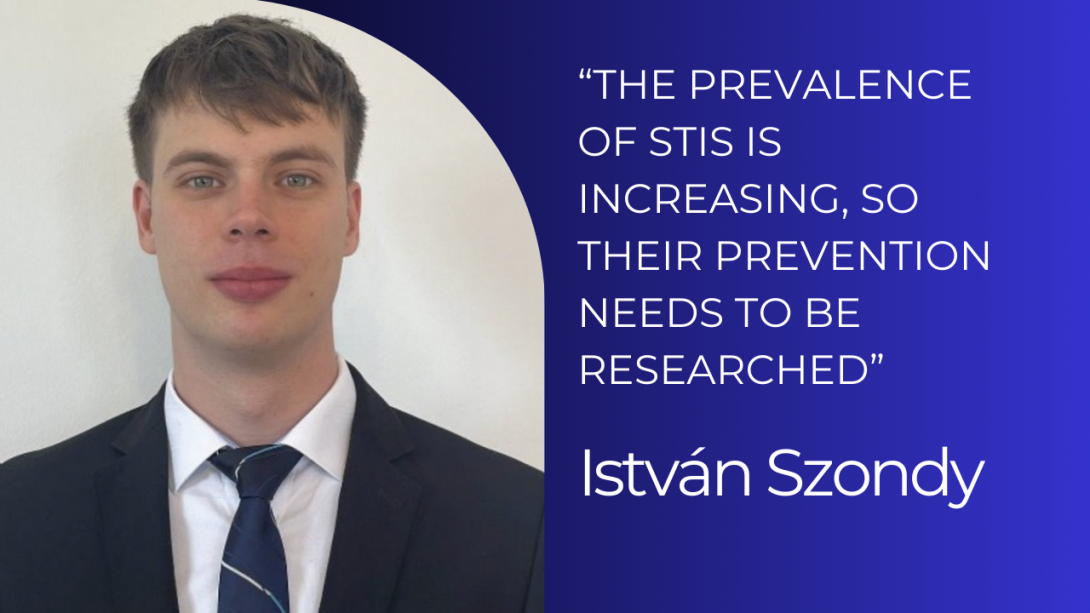
He explores prevention methods and early intervention opportunities for sexually transmitted infections, such as chlamydia, syphilis, and gonorrhea, which are becoming more and more frequent worldwide. Another important topic of his is hidradenitis suppurativa, about which many questions need to be answered. In April, Dr. Istvan Szondy was named the Best First-Year Ph.D. Student at the Centre for Translational Medicine.
István Szondy started his scientific career as a fourth-year medical student at the Department of Dermatology, Venereology and Dermatooncology, where he was first encountered with the CTM Ph.D. program. “My TDK mentor, András Bánvölgyi, was the supervisor of Fanni Meznerics, who joined the Ph.D. program among the first ones. I gained insight into Fanni's work and liked it very much. This motivated me to join the CTM Ph.D program after graduating. My supervisor is still András Bánvölgyi, he helps me greatly in my research.”
Dr. Szondy's first publication was recently completed. In that, he was investigating the efficacy and safety of doxycycline in preventing sexually transmitted infections. The idea of this topic was inspired by the fact that the prevalence of STIs has increased worldwide, which has put prevention in the spotlight. Some doctors started using doxycycline within 72 hours after sexual intercourse, but it was unclear whether this could provide protection against sexually transmitted infections. “Our meta-analysis revealed that this method is effective against chlamydia and syphilis, and potentially effective against gonorrhea – but in that case, resistance is a serious problem. This gave me the idea for my second project, which explores prevention possibilities for gonorrhea. There is no specific vaccine against this disease, but it has been observed that one of the meningococcal vaccines might be effective against it. In our meta-analysis, we want to clarify this question.”
In his third topic, Dr. Szondy is investigating the efficacy and safety of treatments for hidradenitis suppurativa, which is an autoimmune skin disease. “We are researching how this problem can be effectively managed at each stage. The range is relatively wide, including drugs, biological, immunological and surgical treatments, and combinations of these. In each case, we aim to determine the most optimal choice. Our vision is to delay or stop the progression of the disease by treatment".
(Szabó Emese)